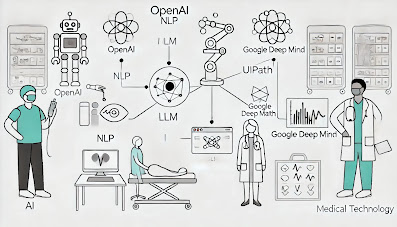here’s a simplified dual-company investment/business report on NVE Corp (NVEC) and GlobalFoundries (GFS), with emphasis on how they complement each other for retail investors seeking exposure to the spintronics market.
📊 Investment/Business Report: NVEC + GFS
🧲 NVE Corporation (NASDAQ: NVEC)
Snapshot
-
Market Cap: ~$250–300M (microcap)
-
Focus: Pure-play spintronics — magnetic sensors (GMR/TMR) and digital isolators (IsoLoop®).
-
Dividend: ~$1.00/share quarterly (~6% yield).
Technology & Advances
-
Sensors: Giant/tunnel magnetoresistance (GMR/TMR) sensors for position, current, and rotation sensing.
-
Digital isolators: Patented spintronic isolators with low EMI, high speed, and radiation resistance.
-
MRAM IP: Early co-developer of MRAM; licenses IP, but does not mass-produce.
-
Recent R&D: High-reliability isolator series (IL7xxH) targeting space/aerospace designs.
Financials
-
FY2025 Revenue: ~$25.9M (down 13% YoY)
-
Net Income: ~$15M (margin ~58%)
-
Balance sheet: No debt, strong cash, high dividends.
Market & Clients
-
End markets: Aerospace/defense, industrial automation, medical electronics.
-
Customer base: Primarily OEMs via distributors; often undisclosed due to defense/medical use.
Competitive Position
-
Moat: Specialized spintronics IP, radiation-hard reliability, and consistent profitability.
-
Competitors: Allegro, Infineon, TDK (TMR sensors); Analog Devices, Silicon Labs (digital isolators).
🏭 GlobalFoundries (NASDAQ: GFS)
Snapshot
-
Market Cap: ~$35–40B (large-cap)
-
Focus: Specialty semiconductor foundry with emphasis on automotive, IoT, RF, and embedded memories.
-
Dividend: None; reinvests in fabs and partnerships.
Technology & Advances
-
eMRAM (embedded MRAM):
-
22FDX eMRAM already in volume production.
-
Partnered with Everspin for MRAM commercialization.
-
Supplying NXP automotive MCUs with eMRAM at 16 nm (sampling 2025).
-
-
Foundry role: Provides IP/processes enabling MRAM in automotive-grade, low-power chips.
-
CHIPS Act support: Benefits from U.S. and EU funding for domestic fabs.
Financials
-
Revenue (2024): ~$7B
-
Profitability: Thin margins, cyclical, but EV/EBITDA (~7.5x) suggests undervaluation vs. peers.
-
Customer base: Broad — NXP, Qualcomm, AMD (legacy), aerospace/defense contracts with U.S. DoD.
Competitive Position
-
Moat:
-
Specialty focus (not cutting-edge like TSMC, but tuned for auto/IoT).
-
Long-term contracts with automotive, defense, and government customers.
-
Scale and fabs give them first access to integrate new spintronic materials.
-
-
Competitors: TSMC, Samsung Foundry, Intel Foundry Services.
🔗 Why NVEC + GFS Together?
| Attribute | NVE (NVEC) | GlobalFoundries (GFS) | How They Complement |
|---|---|---|---|
| Scale | Tiny, niche | Large-cap, global | Provides both niche precision and mass infrastructure |
| Focus | Spintronics IP, sensors, isolators | Embedded MRAM in automotive/IoT | Covers both component-level devices and manufacturing platforms |
| Exposure | Direct to spintronics fundamentals | Indirect but crucial enabler | Dual exposure: boutique physics + scalable foundry |
| Financials | Profitable, high dividend | Growth reinvestment, undervalued multiples | Income (NVEC) + growth/infrastructure (GFS) |
| Market Reach | Defense, aerospace, medical niches | Automotive, IoT, global foundry markets | Balanced coverage of high-reliability + mass-market applications |
📈 Investor Takeaways
-
NVEC:
-
Best for retail investors wanting direct spintronics exposure, with income stability (6% dividend yield).
-
Niche focus makes it volatile but differentiated.
-
-
GFS:
-
Best for exposure to spintronics at scale (eMRAM in auto/IoT chips), backed by government support.
-
A strategic, lower-risk play on spintronics integration into mainstream semis.
-
Combined Strategy
-
Why own both?
-
NVEC = “pure physics boutique” → dividend income + niche exposure.
-
GFS = “infrastructure backbone” → large-cap stability + scaling of MRAM into auto/IoT.
-
Together, they give retail investors broad yet complementary exposure to spintronics’ present (NVEC) and future (GFS).
-
✅ Bottom line:
For a retail investor bullish on spintronics and quantum-adjacent tech, a mini-portfolio of NVEC + GFS blends direct spintronics exposure with foundry-scale adoption. Add Everspin (MRAM) if you want higher-risk, higher-reward pure MRAM growth.
ED Note: Full disclosure
We recently bought NVEC shares and have placed GFS on watch list!













